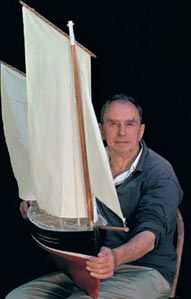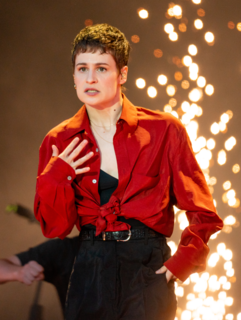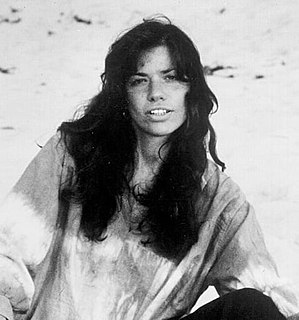A Quote by Ian Hamilton Finlay
As a friendly one. I would still like to write concrete poems, but I can only do it sometimes.
Related Quotes
What does it mean to be a used white wife, a mother, a tragic girl writing poems? Sandra Simonds gets into these messy words and then tears them apart. Sometimes with the words of others. And sometimes with poems made from scratch. They aren't all bad, these words. But they aren't all good either. And that is where Mother was a Tragic Girl gets its power. You will at moments be laughing but then you will also at moments just as much be crying. If Antigone was alive and decided to write some poems about the nuclear family, she would write them like Sandra Simonds. These are tough.
If I'm still wistful about On the Road, I look on the rest of the Kerouac oeuvre--the poems, the poems!--in horror. Read Satori in Paris lately? But if I had never read Jack Kerouac's horrendous poems, I never would have had the guts to write horrendous poems myself. I never would have signed up for Mrs. Safford's poetry class the spring of junior year, which led me to poetry readings, which introduced me to bad red wine, and after that it's all just one big blurry condemned path to journalism and San Francisco.
I would read the Shel Silverstein poems, Dr. Seuss, and I noticed early on that poetry was something that just stuck in my head and I was replaying those rhymes and try to think of my own. In English, the only thing I wanted to do was poetry and all the other kids were like, "Oh, man. We have to write poems again?" and I would have a three-page long poem. I won a national poetry contest when I was in fourth grade for a poem called "Monster In My Closet.
There is nothing “still” in the remarkably visceral poems of Alexander Long's third collection, Still Life, and nothing is at rest in these restless and edgy poems. Conversational and kinetic, these poems chart the traces left by the shifting overlays of the templates of literature, rock-and-roll, and contemporary culture. As each poem in Still Life attempts to fix a focus upon a scene or subject, the protean natures under view draw the poet into the eddies and complexities of reflection. This is a powerful and moving collection of poems.






































